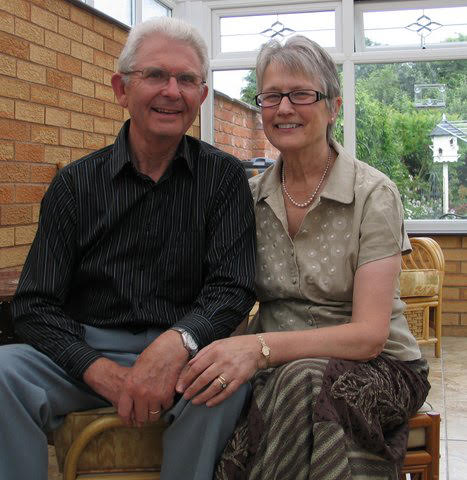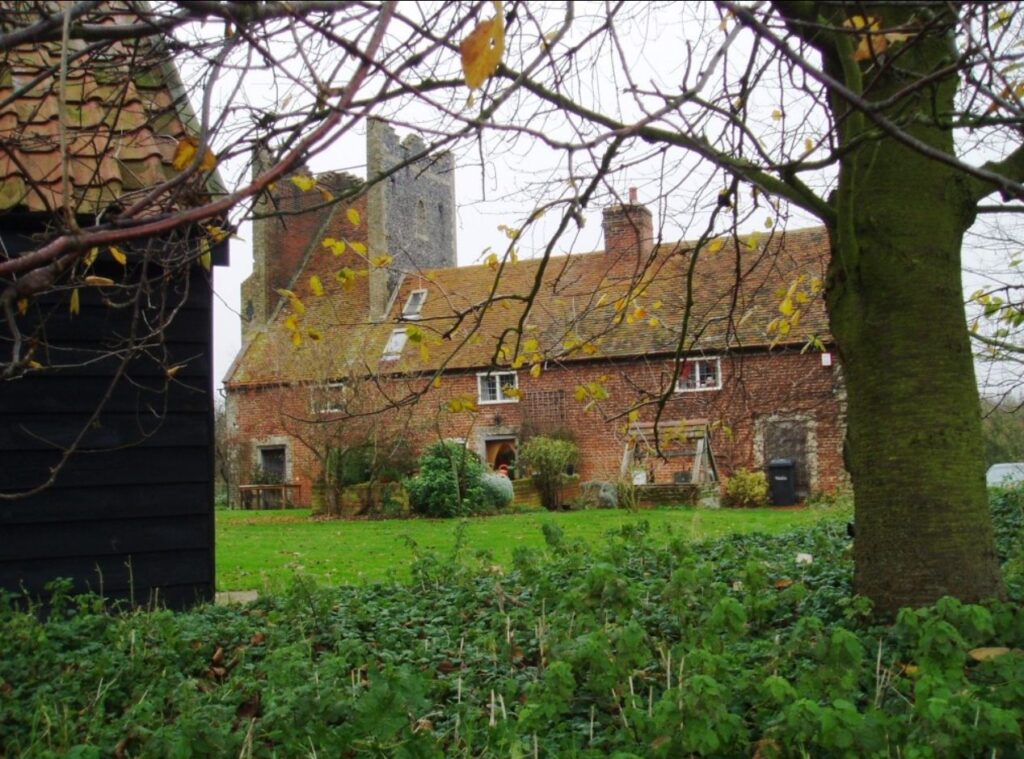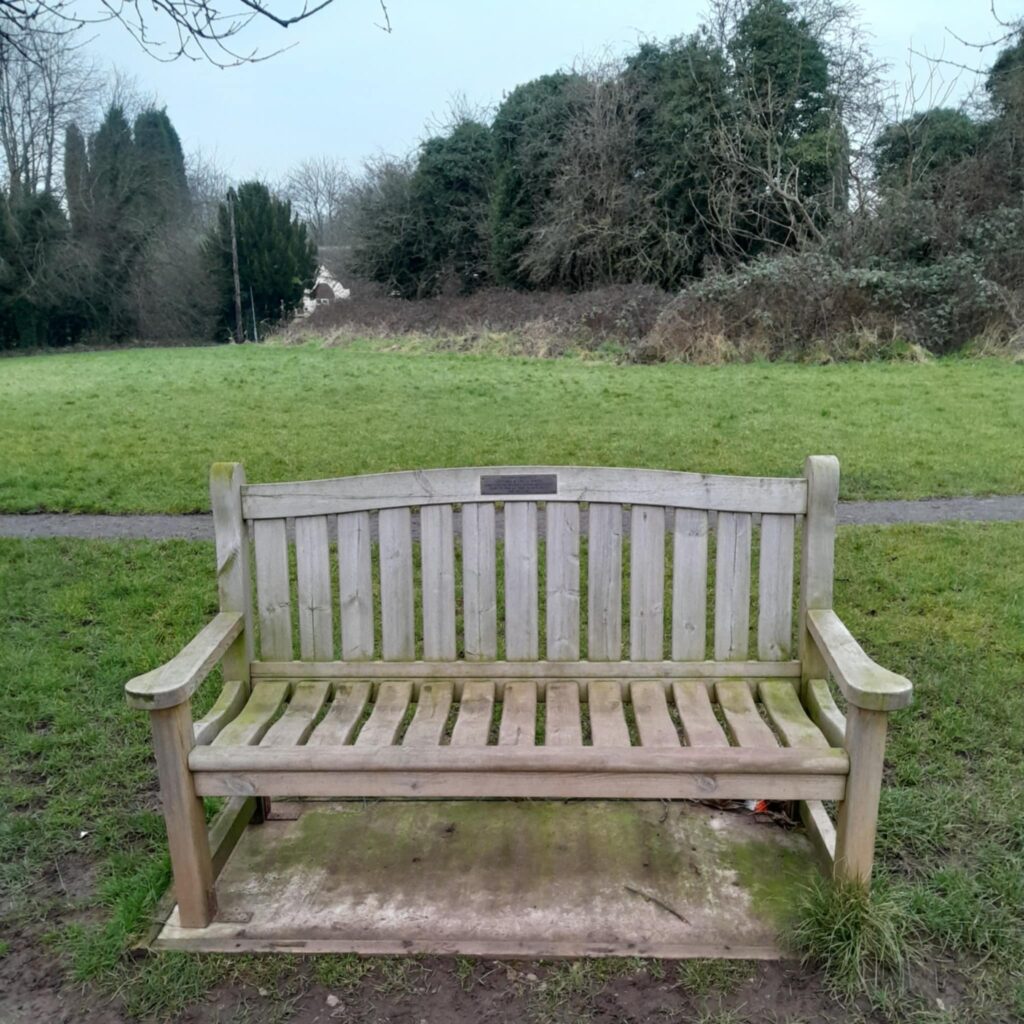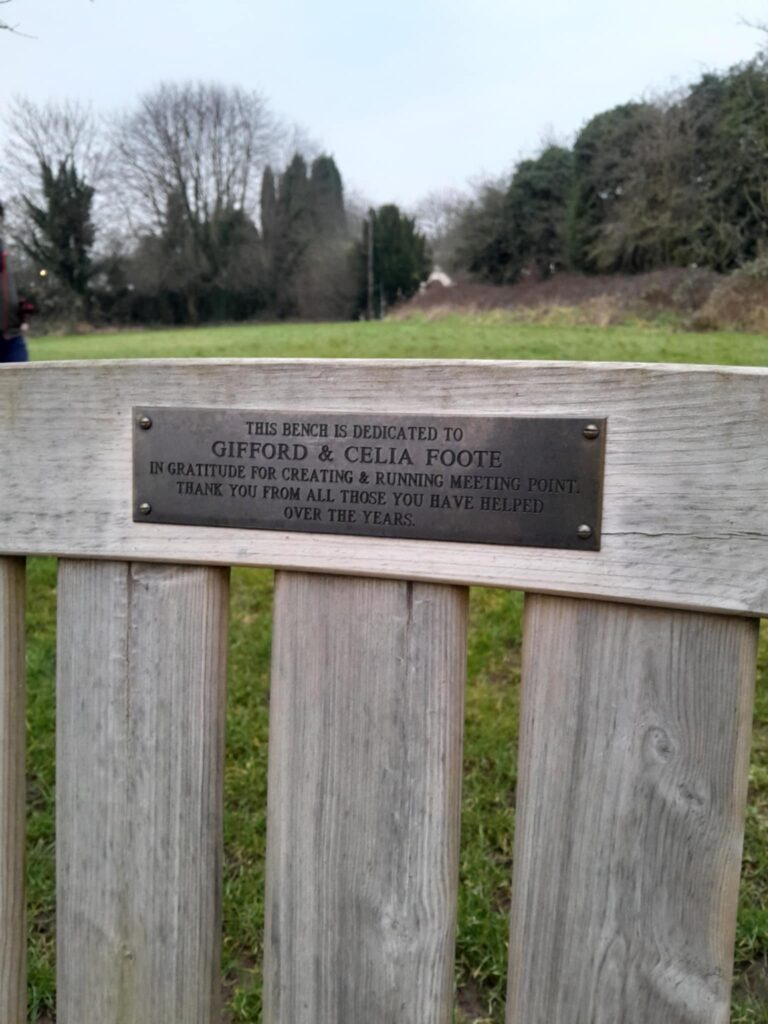By Roy Fallows and Richard Ewing

Gifford was born in 1940 in the small village of Tattingstone in Suffolk. He was actually born in his grandparents’ farm cottage which was the splendidly named Tattingstone Wonder. It has a sort of folly attached to it which looked like a church tower, except that it only had three sides. It was erected by the local squire who wanted to see a view of a church tower from each side of his manor house. Gifford’s father was a non-practising Roman Catholic and his mother was an Anglican. He was raised as an Anglican.

Gifford’s grandfather had lost an eye while serving in World War I, but it didn’t stop him being a farm horseman. Gifford spent many happy hours at his grandparents’ collecting eggs and looked forward to an occasional ride on a Suffolk Punch horse. His farm worker uncle always said that tractors would never catch on.
Early life and education
He remembers some aspects of World War II such as blackouts and air raid sirens at the local naval school. (Royal Greenwich School or Royal Hospital School}. When an alert was on, he and his mother with younger brother and sister went under the reinforced kitchen table or under the stairs, behind a curtain and mother would recite poems to take their minds off possible air raids.
Gifford and his friends played games on the dirt road outside their houses and when they heard a car approaching on the nearby main road, they would all run to see it because it was a rare event.
He attended the local village school and then the Holbrook County Modern secondary school. He felt that he had a good education which prepared him for life with subjects like pottery, printing and horticulture and public speaking. He became head boy and then went to Ipswich School of Commerce for ‘O’ and ‘A’ levels.
When he was fourteen years old, he went to see a man erect a large tent on a field near his home. The man, Stanley Gardner, erected the tent himself with the help of his Ford Popular car pulling up the heavy ropes and canvas. The man was a missioner with the Caravan Mission to Village Children and after playing a game of cricket, they were invited to tent meetings in the early evenings where Mr Gardner told illustrated flannelgraph stories from the bible while his wife played the harmonium. This meeting proved to be a defining moment in Gifford’s life.
The Mission’s efforts were supported by the local clergy and were presented in such an inspiring way that Gifford began to think of living his life as a Christian. During this time Gifford was earning a bit of money working in a local shop on a Saturday and doing some gardening for a sea captain. It was while he was in that garden that he decided for Christ.
Higher education and teaching career
For several years he attended summer camps with the Caravan Mission where about 40 boys from all over Suffolk enjoyed summer days of activity. He was later invited as a male officer on the following girls’ camp as well. It was there at the age of twenty-four, that he met his future wife, Celia Woodhouse.
Going back to when he was eighteen, he did a year as a student teacher before starting teacher training at Culham College near Oxford. He was attracted to their rural science course. He studied rural science and divinity as main subjects at college from 1959 to 1961. After teaching at Copleston Road boys’ secondary school in Ipswich for a further 4 years, he studied for a diploma in Religious Education at the University of London.
After their second meeting at the CMVC girls’ camp in Oulton, Suffolk Gifford rode his motorcycle from Holbrook to London to visit Celia who was studying for her Bachelor of Divinity there. He arranged to attend a course in London so he could see her often. While in London he met many interesting people and scholars connected with theology.
Overseas service and Family Life
In 1967 they married in Cheshire at Prestbury parish church. This was the home church of Celia. (Celia’s mother attended the Anglican church there, though her father was a Methodist local preacher) After seven years teaching in Ipswich, Gifford was appointed Head of Department in RE at Kingsmead Secondary School whilst Celia started married life and her first job of teaching at Cannock Grammar School. Gifford remained Head of Department at Kingsmead for 28 years, (1967 – 1995).
They lived in Brereton in a house overlooking the power station and travelled together to Hednesford and Cannock in their Morris Minor van.
In 1971 -1972 they both did a year as volunteers with VSO, overseen by the British Council in Papua New Guinea. Gifford taught a range of subjects to students aged 12 -26 and oversaw agriculture. Celia lectured at a theological college and, in the main, taught English at George Brown High School.
In 1972 Gifford resumed his teaching at Kingsmead Comprehensive School. It was in 1974 that the first of their three children – Conrad – was born and their second son, Austin, was born in 1977.
Community involvement and Faith-based work
With a growing young family they needed a larger house and in 1978 Celia found a house in Handsacre which, by coincidence, had been a Methodist Chapel. (The chapel was converted to a dwelling house in 1894 when the existing Handsacre Methodist church – Temple – took its place.) Their family was completed with the birth of Judith in 1980.
Gifford has always been very community minded and was keen to get involved in anything which might benefit that community.
After their marriage they first joined the Methodist church in Brereton and when they moved to Handsacre, he and Celia began attending the Methodist church in Handsacre. Both he and Celia were immediately invited on to the church council and to begin with they were both members of the Methodist and Anglican church councils in the village. Both were ecumenically minded and sought to have combined Methodist/ C of E services and events.
Gifford was made superintendent of the Junior Methodist church. Celia needed to spend more time with their growing family. On moving to Handsacre they first attended St Luke’s Anglican Mission at Handsacre (Hall Road) at 9 am as well as the 11am Methodist service. This proved impracticable after a while as Gifford’s responsibilities with the Methodist church increased.
They still organised ecumenical events such as monthly ‘Mid-Week Together’ for all Christians and enquirers and for 6 years Celia was chairperson of the Rugeley and District Council of churches which met at Hawkesyard Priory hosted by the Dominican Friars there. At its height, more than 80 people from all denominations attended monthly meetings and worship there.
Gifford’s resolve was to worship in the community nearest to his home and he organised various activities and exhibitions, including a history project with Hayes Meadow school in Handsacre. The centenary of Handsacre Temple in 1994 brought together many organisations and Gifford determined that it should lead to other things.
Meeting Point and continued service
After Gifford retired early with ‘burn-out’ after 35 years of teaching in 1996, he volunteered as an adviser with Rugeley Citizens Advice Bureau.
Celia was at that time working for Age Concern, and it was these two occupations which inspired them to set up Meeting Point.
The concept was to give people a meeting place if they needed to seek advice on a wide range of life problems and to tackle isolation and loneliness within a lively social atmosphere. Meeting Point began in 1999 and is still going today. Another venture was the Knit & Natter group who have raised more than £9,000 over 15 years for the Donna Louise Hospice.
Legacy and recognition


In recognition of Gifford’s and Celia’s work for the village the Parish Council erected a bench in their honour on the Village Green, opposite the Methodist Temple and in the 2025 New Year Honours List Gifford was awarded the British Empire Medal.
Gifford states that he doesn’t feel that he deserves any reward. He says, ‘Our volunteers are what makes it all work’ ‘We have several very dedicated and talented people who are willing to help and share time and understanding to other people. It is teamwork which makes things happen; not just me ‘ The key factor is that we all enjoy what we are doing, and we gain a great deal of satisfaction in working as a team.
I am proud to belong to this village.’
